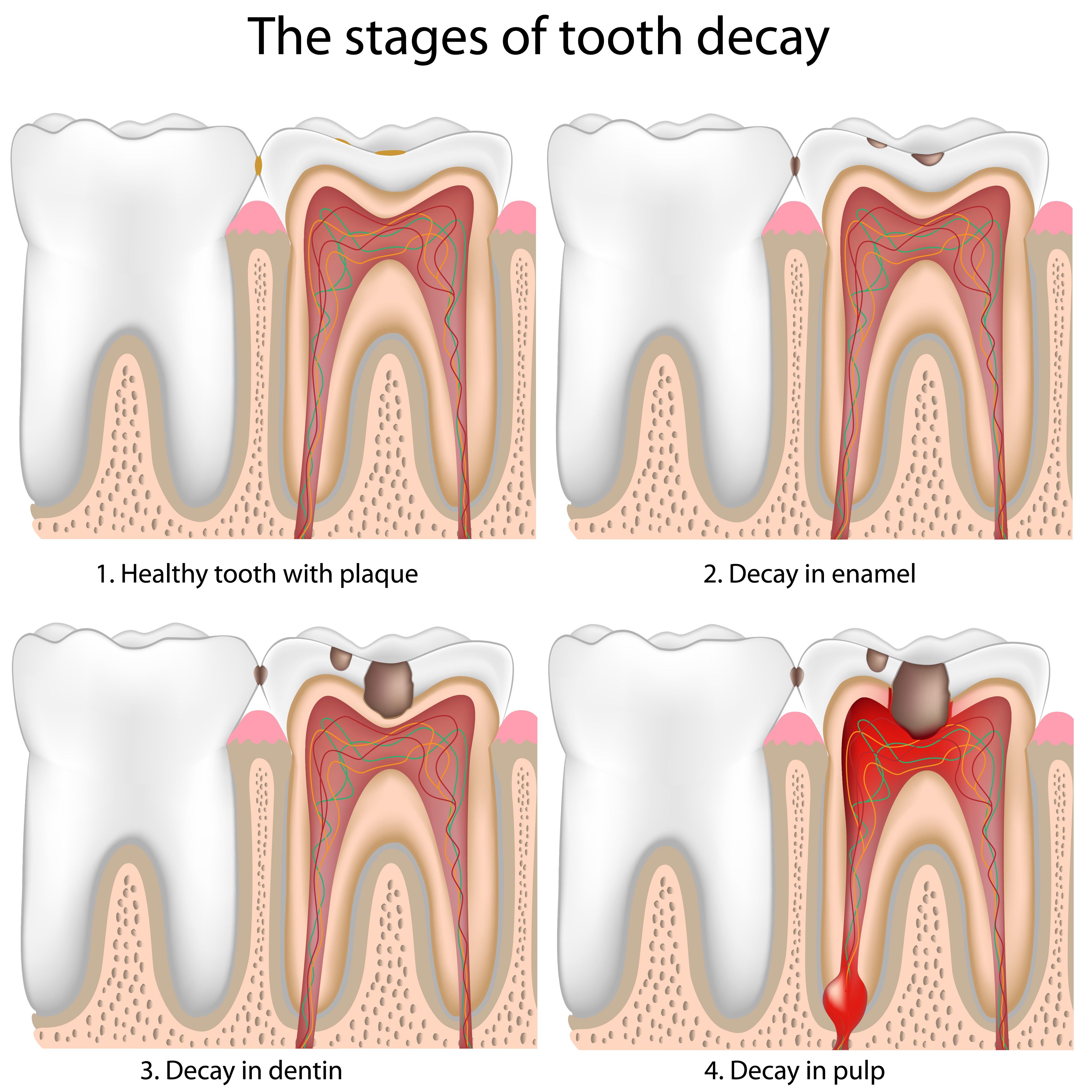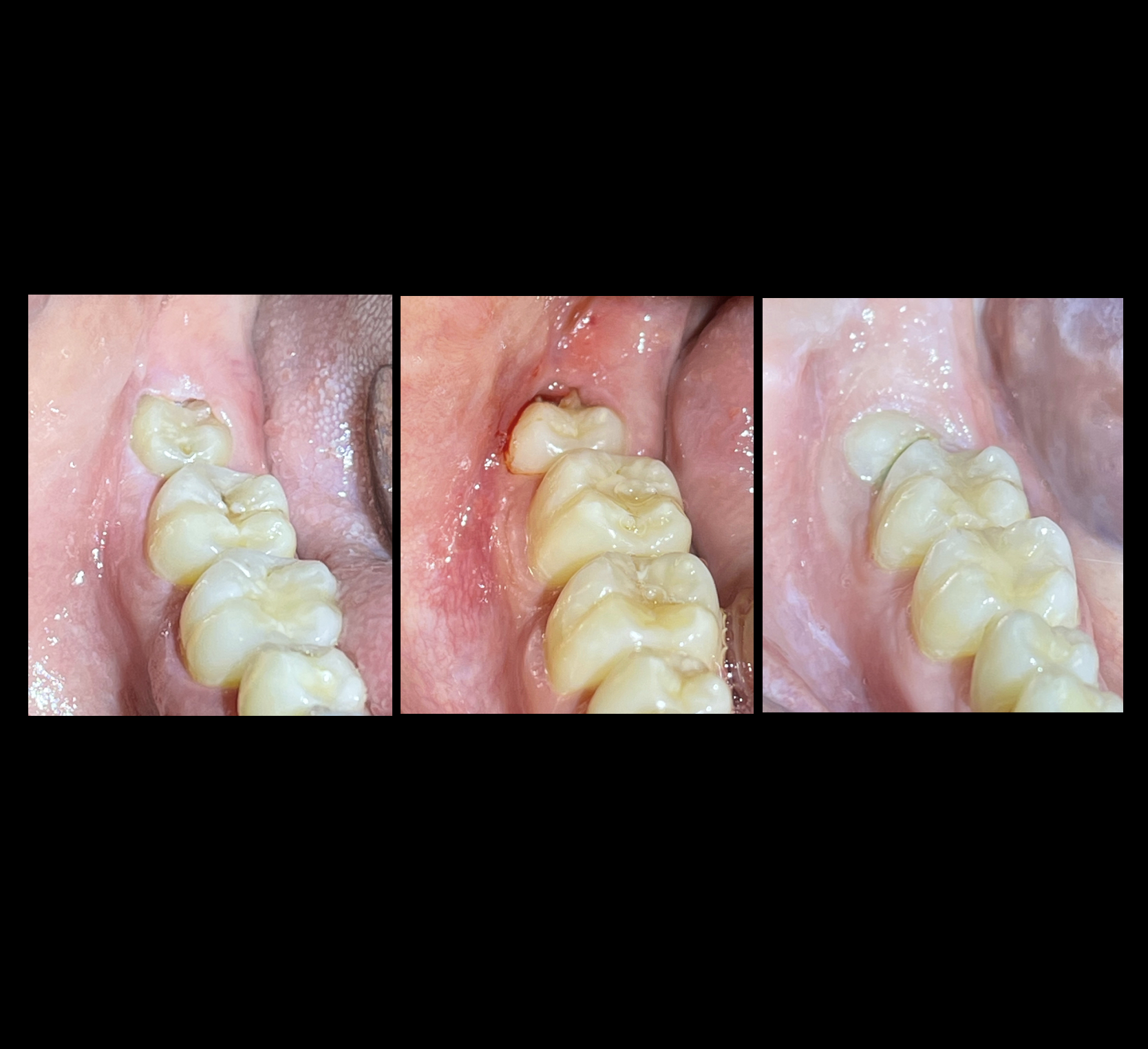Imagine this scenario: You’ve been feeling a dull ache in the back of your mouth for days, thinking it’s just a minor toothache. But what if that seemingly harmless pain turns into something far more dangerous? Infected wisdom tooth death is a rare but very real possibility that can happen if left untreated. Today, we’re diving deep into this topic to help you understand the risks, symptoms, and how to prevent it.
Let’s face it, most people don’t think much about their wisdom teeth unless they start causing trouble. But when an infected wisdom tooth gets out of control, it can lead to some serious health complications. It’s not just about pain or swelling anymore; it’s about understanding the potential consequences and taking action before it’s too late.
In this article, we’ll break down everything you need to know about infected wisdom tooth death. From the causes and symptoms to prevention and treatment, we’ve got you covered. So grab a cup of coffee, sit back, and let’s dive into the world of oral health and why ignoring your wisdom teeth could be a big mistake.
- Urgent Fda Ramen Recall September 2024 What You Need To Know
- Breaking Why Was Ramen Recalled Find Out Now Details
Understanding Wisdom Teeth: What Are They Exactly?
Wisdom teeth, also known as third molars, are the last set of teeth to emerge in your mouth. Typically, they appear between the ages of 17 and 25, but sometimes they can show up earlier or later. These teeth earned their name because they usually appear during a time when people are considered to be more mature or “wiser.”
However, not everyone is lucky enough to have wisdom teeth that grow in perfectly. In many cases, they can become impacted, meaning they don’t have enough room to come in properly. This can lead to a host of problems, including infections, gum disease, and even cysts. And if left untreated, these issues can escalate quickly.
Why Do Wisdom Teeth Cause Problems?
- Wisdom teeth often don’t have enough space to erupt properly.
- They can become trapped beneath the gum line, leading to infections.
- Food and bacteria can get trapped around partially erupted wisdom teeth, increasing the risk of decay and gum disease.
Think of it like this: your mouth is already packed with teeth, and suddenly these new ones try to squeeze in. It’s like trying to fit a size 12 foot into a size 8 shoe. Not only does it hurt, but it can also cause damage to the surrounding teeth and gums.
- Alert Are Ramen Noodle Recalls A Concern Safety Tips
- Stay Safe What To Know About Ramen Noodle Recalls Brands
What Happens When a Wisdom Tooth Gets Infected?
When a wisdom tooth becomes infected, it’s not just a simple toothache anymore. The infection can spread to the surrounding gum tissue, bone, and even other parts of the body. This is where things can get serious, and in rare cases, it can lead to death.
But how does this happen? Well, when bacteria accumulate around a wisdom tooth, they can cause an infection known as pericoronitis. If left untreated, this infection can spread to the bloodstream, leading to a condition called sepsis. Sepsis is a life-threatening response to infection that can affect multiple organs and systems in the body.
Signs and Symptoms of an Infected Wisdom Tooth
Here are some common signs that your wisdom tooth might be infected:
- Swelling and redness around the affected area
- Pain that radiates to the ear, throat, or jaw
- Bad breath or a bad taste in your mouth
- Difficulty opening your mouth
- Fever or chills
It’s important to note that these symptoms can vary from person to person. Some people might experience mild discomfort, while others could have severe pain and swelling. If you notice any of these signs, it’s crucial to see a dentist as soon as possible.
How Common Is Infected Wisdom Tooth Death?
Thankfully, infected wisdom tooth death is extremely rare. However, it’s still something that should be taken seriously. According to the American Dental Association, complications from impacted or infected wisdom teeth occur in about 10% of cases. While most of these complications are treatable, there are instances where they can become life-threatening.
A study published in the Journal of Oral and Maxillofacial Surgery found that untreated dental infections can lead to severe complications, including sepsis, Ludwig’s angina, and even death. These conditions are rare, but they highlight the importance of seeking prompt medical attention if you suspect an infection.
Case Studies: Real-Life Examples
There have been several documented cases of infected wisdom tooth death over the years. One such case involved a young man in the UK who ignored the symptoms of an infected wisdom tooth. By the time he sought medical help, the infection had spread to his brain, leading to a tragic outcome.
Another case involved a woman in the US who experienced severe swelling and difficulty breathing due to an untreated wisdom tooth infection. She was rushed to the hospital and underwent emergency surgery to remove the infected tooth and drain the abscess. While she survived, the experience was a wake-up call for her and her family.
Preventing Infected Wisdom Tooth Death: What Can You Do?
The good news is that infected wisdom tooth death is preventable. By taking proactive steps, you can reduce your risk of developing serious complications. Here are some tips to help you stay on top of your oral health:
- Visit your dentist regularly for check-ups and cleanings.
- Practice good oral hygiene by brushing and flossing daily.
- Monitor any changes in your mouth, such as swelling or pain, and report them to your dentist.
- Consider getting your wisdom teeth removed if they are impacted or prone to infection.
Remember, prevention is key. Don’t wait until you’re in pain to see a dentist. Regular check-ups can catch potential problems early, before they become serious.
When Should You See a Dentist?
If you experience any of the following symptoms, it’s time to see a dentist:
- Persistent pain or swelling in the back of your mouth
- Difficulty swallowing or breathing
- Fever or chills
- Swelling that doesn’t go down after a few days
Don’t ignore these warning signs. Early intervention can make a huge difference in preventing complications.
Treatment Options for Infected Wisdom Teeth
Depending on the severity of the infection, there are several treatment options available:
- Antibiotics: If the infection is mild, your dentist may prescribe antibiotics to help clear it up.
- Pain Relief: Over-the-counter pain relievers like ibuprofen or acetaminophen can help manage pain and inflammation.
- Extraction: In more severe cases, your dentist may recommend removing the infected wisdom tooth to prevent further complications.
It’s important to follow your dentist’s advice and complete any prescribed treatments. Skipping doses of antibiotics or ignoring follow-up appointments can lead to the infection worsening.
What to Expect After Wisdom Tooth Removal
After having a wisdom tooth removed, it’s normal to experience some discomfort and swelling. Your dentist will provide you with aftercare instructions, which may include:
- Avoiding straws and smoking for at least 24 hours
- Applying ice packs to reduce swelling
- Eating soft foods for the first few days
Following these guidelines can help speed up your recovery and reduce the risk of complications like dry socket.
Dispelling Myths About Wisdom Teeth
There are a lot of myths and misconceptions about wisdom teeth floating around. Let’s take a moment to clear up some of the most common ones:
- Myth: Everyone needs to have their wisdom teeth removed. Fact: Not everyone needs to have their wisdom teeth removed. If they grow in properly and don’t cause any issues, they can be left alone.
- Myth: Wisdom tooth removal is extremely painful. Fact: While there may be some discomfort after the procedure, modern dental techniques and pain management options make it much more manageable.
It’s important to separate fact from fiction when it comes to wisdom teeth. Always consult with a qualified dentist to get accurate information about your specific situation.
Why Trust Your Dentist?
Your dentist is your partner in maintaining good oral health. They have the expertise and experience to diagnose and treat issues related to wisdom teeth. By building a strong relationship with your dentist, you can ensure that any potential problems are addressed promptly and effectively.
The Bottom Line: Take Action Now
Infected wisdom tooth death may be rare, but it’s a reminder of how important it is to prioritize your oral health. By staying informed and taking proactive steps, you can reduce your risk of developing serious complications. Remember, prevention is always better than cure.
So, what can you do today? Schedule a dental check-up, practice good oral hygiene, and listen to your body. If you notice any signs of an infected wisdom tooth, don’t hesitate to seek medical attention. Your health is too important to ignore.
Call to Action: Share this article with your friends and family to help spread awareness about the dangers of infected wisdom teeth. And don’t forget to leave a comment below with your thoughts or questions. Let’s start a conversation about oral health and how we can all stay safe!
Table of Contents
- Understanding Wisdom Teeth
- What Happens When a Wisdom Tooth Gets Infected?
- How Common Is Infected Wisdom Tooth Death?
- Preventing Infected Wisdom Tooth Death
- Treatment Options for Infected Wisdom Teeth
- Dispelling Myths About Wisdom Teeth
- The Bottom Line
- Causes of Infected Wisdom Teeth
- Symptoms of Infected Wisdom Teeth
- Why Trust Your Dentist?
- Breaking Is Your Ramen Safe Check Recent Recalls Now
- Slayeas Leaks What You Need To Know About The Latest Scandal


